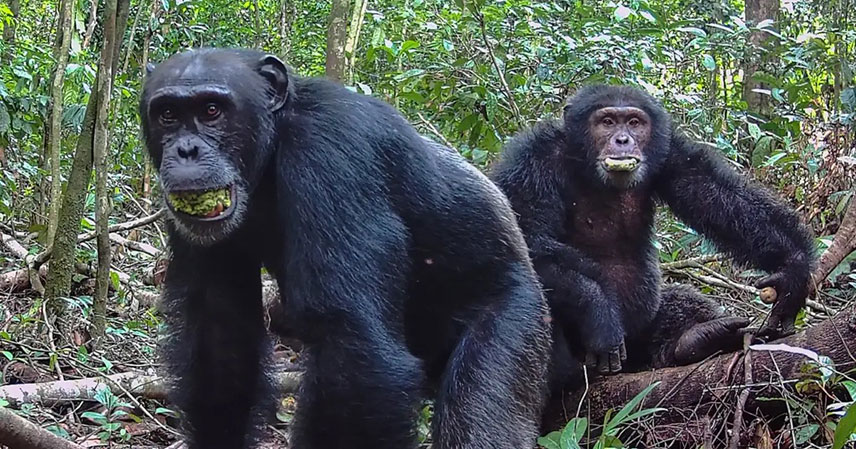Recent scientific findings have unveiled two seemingly disparate yet interconnected narratives: the surprisingly high alcohol consumption of chimpanzees and the reaffirmed dangers of greenhouse gas emissions. While seemingly unrelated, these discoveries highlight the dynamic nature of scientific understanding and the complex interplay between human behavior, environmental factors, and political landscapes. This analysis will delve into both topics, exploring their individual significance and the broader implications they hold for our understanding of the natural world and our place within it.
First, we’ll examine the surprising revelations about chimpanzees’ daily intake of ethanol, derived from naturally fermented fruit. This challenges previous assumptions about primate behavior and sheds light on the potential evolutionary roots of human alcohol consumption. Second, we will dissect the recently released National Academies of Science report on greenhouse gases, which solidifies the existing scientific consensus on the dangers of climate change despite political headwinds. Finally, we will explore the interwoven themes of scientific progress, political influence, and the urgent need for evidence-based decision-making in both these contexts.
By synthesizing these seemingly disparate studies, we aim to illuminate the broader implications of scientific discoveries and the importance of robust, evidence-based policymaking in addressing both immediate and long-term challenges.
The Drunken Monkey Hypothesis Revisited 🐒
For years, the “drunken monkey hypothesis,” proposing an evolutionary link between primate attraction to alcohol and the development of social behavior, faced skepticism. The common belief was that primates avoided fermented fruits. However, recent research published in Science Advances, co-authored by Robert Dudley, directly challenges this assumption. The study meticulously measured the ethanol content of fruits consumed by chimpanzees in Ivory Coast and Uganda.
The findings are striking: chimpanzees consume approximately 14 grams of alcohol daily, equivalent to nearly two standard alcoholic drinks for a human, adjusted for their body mass. This data, coupled with earlier observations of chimpanzees selectively sharing fermented African breadfruit, provides compelling evidence supporting Dudley’s hypothesis. The observed sharing behavior further suggests a complex social dimension to their alcohol consumption.
This research not only deepens our understanding of chimpanzee behavior but also offers intriguing insights into the evolutionary history of alcohol consumption in humans. It prompts further investigation into the potential adaptive advantages of alcohol consumption in primates and the role it may have played in shaping social structures and communication.
Climate Change: The Science Remains Unwavering 🌎
In a stark contrast to the evolutionary timescale of the chimpanzee study, the National Academies of Sciences (NAS) has released a report reaffirming the established scientific consensus on the dangers of greenhouse gas emissions. This report comes in response to the EPA’s attempt to revisit its 2009 endangerment finding, which concluded that greenhouse gases pose a significant threat to public health and the environment.
Despite political pressure and attempts to undermine the scientific basis for climate action, the NAS report unequivocally confirms the validity of the 2009 finding. The report emphasizes that the scientific understanding of climate change has only strengthened since then, further solidifying the urgent need for mitigation efforts. This underscores the importance of relying on robust scientific evidence in policymaking, even in the face of political opposition.
The report highlights the direct and indirect health and economic consequences of greenhouse gas emissions. These include increased risks of heat-related illnesses, respiratory problems, and the devastating impacts of extreme weather events. The economic costs of inaction are equally significant, potentially impacting various sectors and leading to substantial financial burdens.
What This Really Means 💡
The juxtaposition of these two seemingly unrelated studies highlights the crucial role of scientific evidence in informing our understanding of the world and shaping our responses to complex challenges. The chimpanzee study forces us to re-evaluate long-held assumptions about primate behavior and its implications for human evolution. Similarly, the NAS report underscores the unwavering scientific consensus on climate change, despite political attempts to downplay its significance.
Both studies reveal the importance of rigorous scientific investigation and the need to remain adaptable and open to new findings. The persistence of the EPA in attempting to undermine the scientific consensus on climate change is a stark reminder of the challenges in translating scientific knowledge into effective policy and action. It also underscores the urgent need for increased public awareness and engagement in scientific discourse.
Key Insights
- Chimpanzee alcohol consumption challenges previous assumptions about primate behavior and supports the “drunken monkey hypothesis.”
- The NAS report reinforces the overwhelming scientific consensus on the dangers of greenhouse gas emissions, despite political opposition.
- Both studies highlight the importance of evidence-based decision-making in addressing complex challenges.
- The contrast between the two studies emphasizes the need for continuous scientific inquiry and adaptation.
- The political challenges surrounding climate action underscore the crucial role of public awareness and engagement in scientific discourse.
In conclusion, the recent findings regarding chimpanzee alcohol consumption and the reaffirmed dangers of climate change offer a compelling case study in the dynamic nature of scientific understanding and the complexities of translating scientific knowledge into effective policy. Both studies serve as a potent reminder of the importance of rigorous research, evidence-based decision-making, and the ongoing need for scientific literacy in navigating the challenges facing our planet and its inhabitants. The future demands a commitment to both scientific advancement and responsible policy informed by the best available evidence, regardless of political pressures.
This article was synthesized from the following sources:



